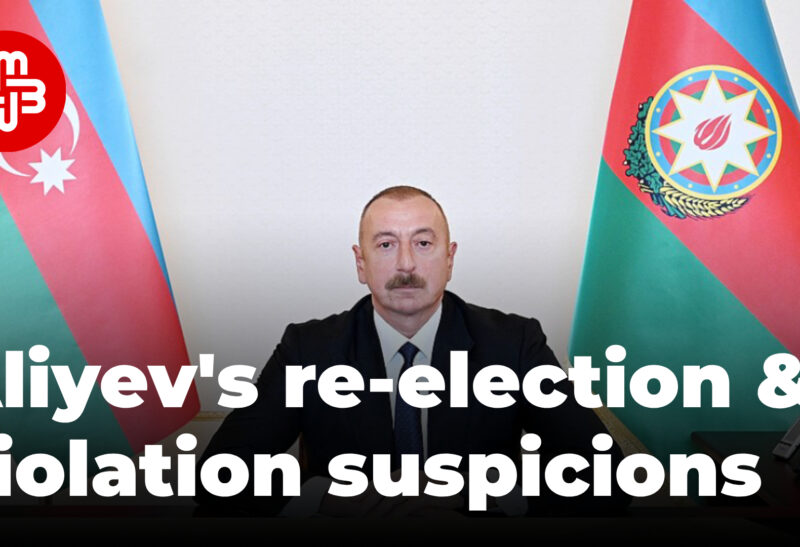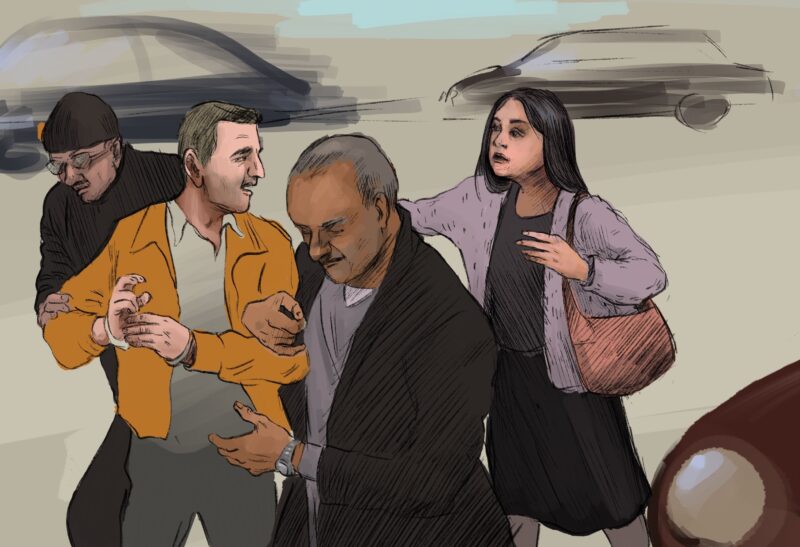On 26 June, the world celebrates the United Nations International Day in Support of Victims of Torture. At Meydan TV, we would like to remind our readers and viewers how much the support of the international community can mean for Azerbaijani political prisoners.
Human rights defenders have counted: in Azerbaijan, every year for the past 25 years at least five people have died from torture. These numbers include only those cases which have been reported publicly. The actual situation is thought to be much worse than this statistic shows.
Very frightened people
Usually instances of torture only become known when the victim is a famous opposition activist or journalist. People who have nothing to do with politics are tortured just as often, but the public does not learn about those instances because the victims are often afraid of speaking out and do not believe that anyone can help them.
“These were people who had nothing to do with politics and they were really frightened. They were scared that if they speak to the press about torture, their sentences will be doubled and they’ll be tortured again…” That’s how lawyer Zaur Gurbanli remembers his cellmates, with whom he spent almost two years in prison on charges of illegally obtaining and possessing firearms. He was recognized by international organizations as a prisoner of conscience.
Azerbaijani authorities provide prisoners with legal counsel, medical attention, and oversight by the ombudsman, but according to Gurbanli, they look the other way when there is clear evidence of torture. “For example, a public defender failed to react at all when the defendant’s nipples were ripped off with pliers in prison. No one found out about it because the lawyer ignored it, and the victim was afraid that they would do something even worse to him,” Gurbanli said.
Lawyer Fariz Namazli has been defending the rights of political prisoners since 2007, and since 2012 has been a member of the Bar Association of Azerbaijan. Over the past few years he has sent three torture-related complaints to the European Court of Human Rights in the cases of the activist Mammad Azizov from the youth organization NIDA, the activist Elgiz Gahramanov, and another prisoner of conscience whose name Namazli will not reveal due to safety concerns.
“The European Court has already initiated communication in two cases,” Namazli said.
The Institute for Peace and Democracy
Namazli pointed out that Azerbaijan took on a number of important obligations regarding human rights when it joined the Council of Europe in 1998. One of them is the investigation of instances of torture and subsequent punishment of all those involved in torture in prisons. For 17 years, Azerbaijan has not prosecuted anyone for torture.
Perhaps that is precisely why instances of torture have become more frequent in recent years, according to Leyla Yunus, a human rights defender and director of the Institute for Peace and Democracy. According to Yunus’s data, in just a few months last year, from April to July 2017, seven people died from torture in Azerbaijan’s prisons.
Leyla and her husband Arif Yunus founded the Institute for Peace and Democracy back in 1995. They were both arrested in the summer of 2014 and accused of treason, espionage for Armenian intelligence, fraud, tax evasion, and falsifying documents.
As human rights defenders well-known beyond Azerbaijan’s borders, their arrest generated a huge response, and European politicians harshly criticized Azerbaijani authorities. In December 2015, a court suspended their sentence. They were immediately released in the courtroom and soon emigrated to the Netherlands. Since then the Institute of Peace and Democracy has been operating from abroad.
For the first two months, the torture was truly unbearable, recalls Arif Yunus:
“They hung me by my arms from the ceiling and left me that way all night. They beat me with a wet towel, they beat me with a bottle of water on my ears and back. It was really painful, but it doesn’t leave any traces.”
The human rights defender says that he was not silent. Specifically, he told representatives of the International Committee of the Red Cross who visited him in prison about what had happened. “But they were really frightened. They said that they couldn’t have any effect on my situation.”
The torture stopped when the European Parliament threatened Azerbaijan with sanctions. “I was saved by a special resolution, in which our names were repeated several times – mine and Leyla’s. As soon as the European Parliament passed that resolution, they stopped torturing. They even moved me to a different cell and improved my conditions,” Arif Yunus recalls.
Unknown victims
In those instances when people are tortured whose names are not known to European parliamentarians, things turn out very differently, explains Leyla Yunus.
On the whole, international organizations react to instances of torture in Azerbaijan half-heartedly, according to her.
“Let me give an example. Stefan Schennach of Austria, one of the two PACE rapporteurs for Azerbaijan, was interested in the state of democratic freedoms and human rights in Azerbaijan. He met with me multiple times both in Azerbaijan and the Netherlands. When I learned that at the October 2017 session of PACE they would be discussing a draft resolution called “The Functioning of Democratic Institutions in Azerbaijan,” I sent Mr. Schennach information about repressions in Azerbaijan, torture and murder by torture.”
But according to Leyla Yunus, this information was not taken into account when PACE passed the resolution.
“I asked why the information about deaths under torture wasn’t reflected in the text of the resolution. After all, in 2017 seven people had died. Mr. Schennach replied that my information wasn’t enough, they needed to receive information from the relatives of the deceased. But the relatives had refused to meet with them because they’d been threatened.”
But, Leyla Yunus adds, even if certain instances of torture are proven, there will probably be no consequences. “No less than five people have died from torture every year in the 25 years that the Aliyev family has been in power. However, there has been no reaction from the international community. Someone might object, saying that there are no proven instances of torture. But that’s not true. Dozens of political prisoners who were subjected to torture have described in detail where they were tortured, by whom and how. Their lawyers have submitted corresponding complaints about instances of torture to the courts.”
And now, says Yunus, lawyers are also targets: recently in Azerbaijan there is a new trend – those lawyers who defend victims of torture are expelled from the Bar Association.
Created with the support of the Russian Language News Exchange



